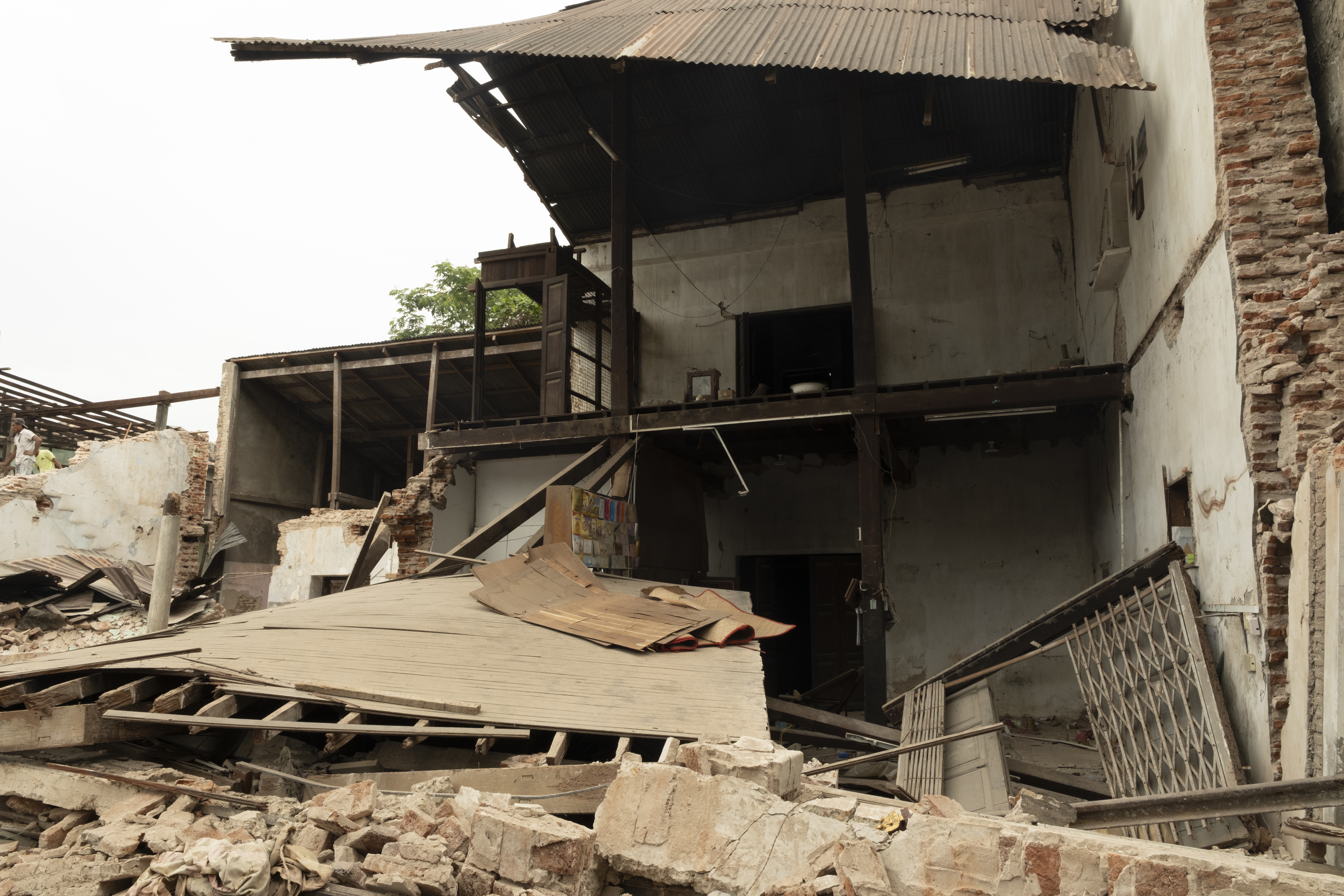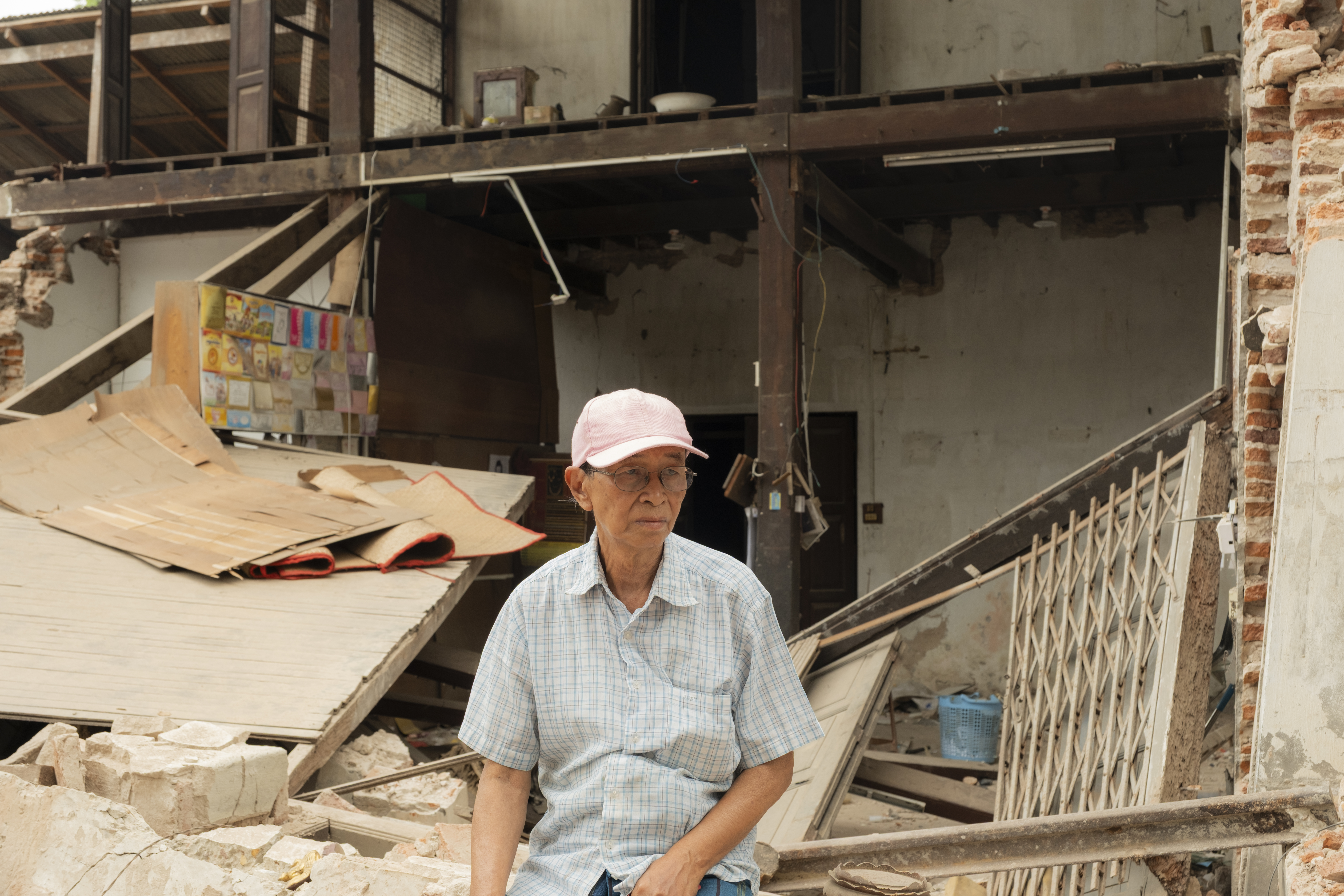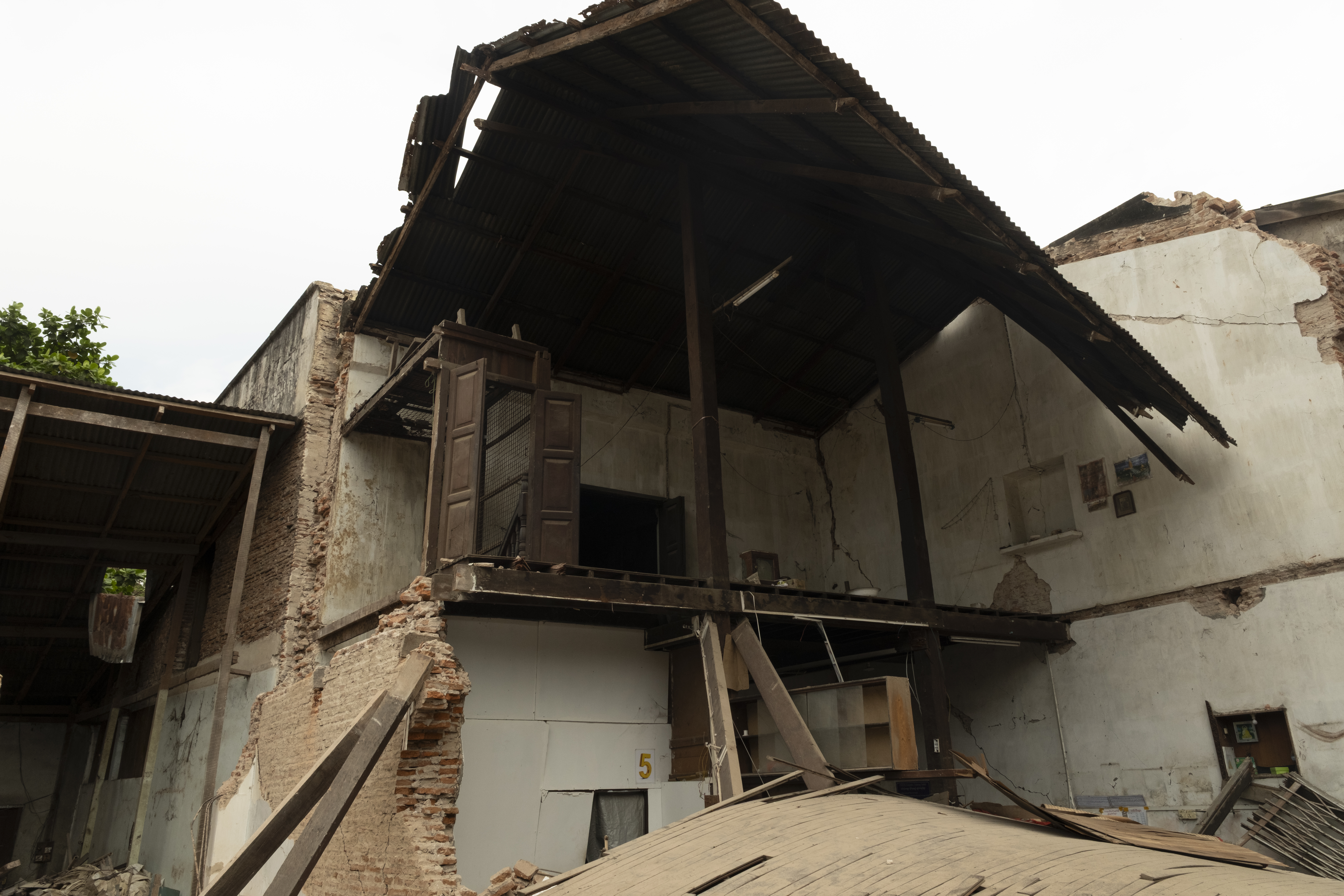As the quake continued, the family ran outside, fearing the worst. With their apartment deemed unsafe, they had no choice but to sleep on the pavement, exposed to the elements, unable even to hang a mosquito net. “We sat there till the next morning,” he said. “There was no other option.”

No shelter, no income, no choice
After several nights sleeping under mango trees, they returned to their damaged home. Repairs and reconstruction would cost more than 100 lakh kyat (approximately $4,760). The family couldn’t afford it. “We do what we can,” he said quietly.
With their apartment in ruins and the replacement housing too small and unsuitable for a family – cooking was not even allowed – they returned to their old neighbourhood. But renting again came at a steep cost. The house is now overcrowded, shared by his daughter and grandchildren, and under repair. Yet they had no other option. “A place to stay is the most important thing for me now,” he said. “We’re cramped, but we must make do.”
Living with pain and holding onto dignity
The injury to U Tin Win’s back is still causing pain. “I can’t sit for long,” he explained, though he hasn’t been able to afford a visit to the clinic. But physical pain is not the only burden.



